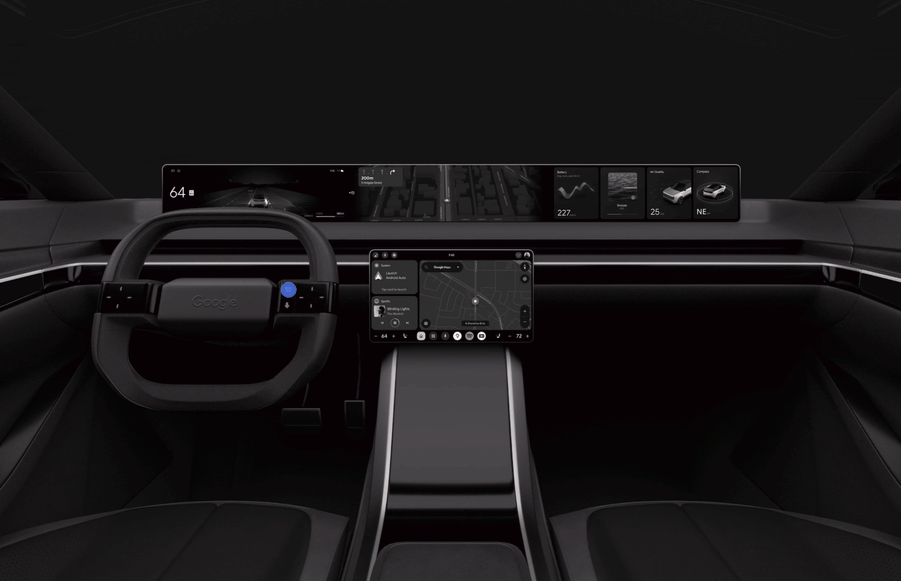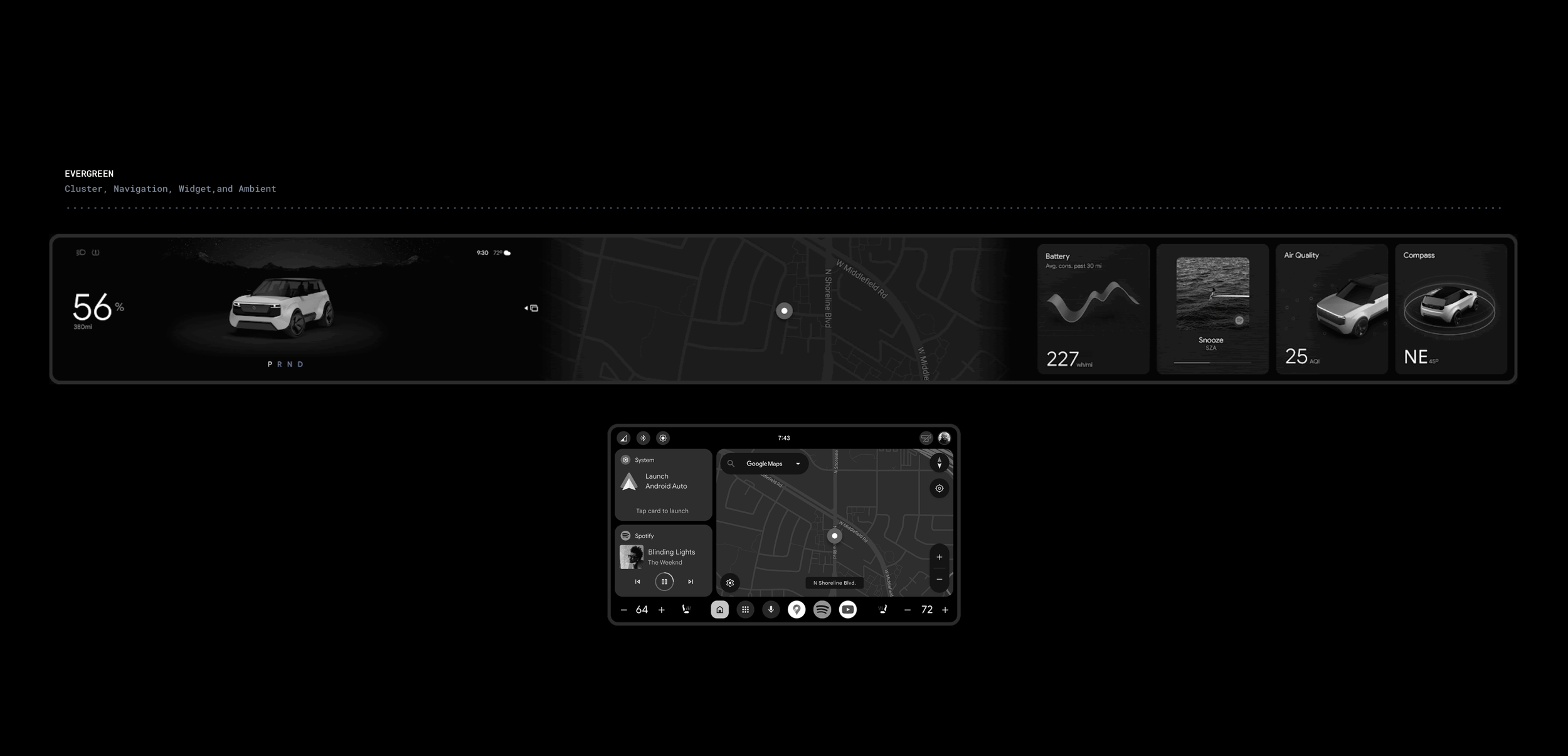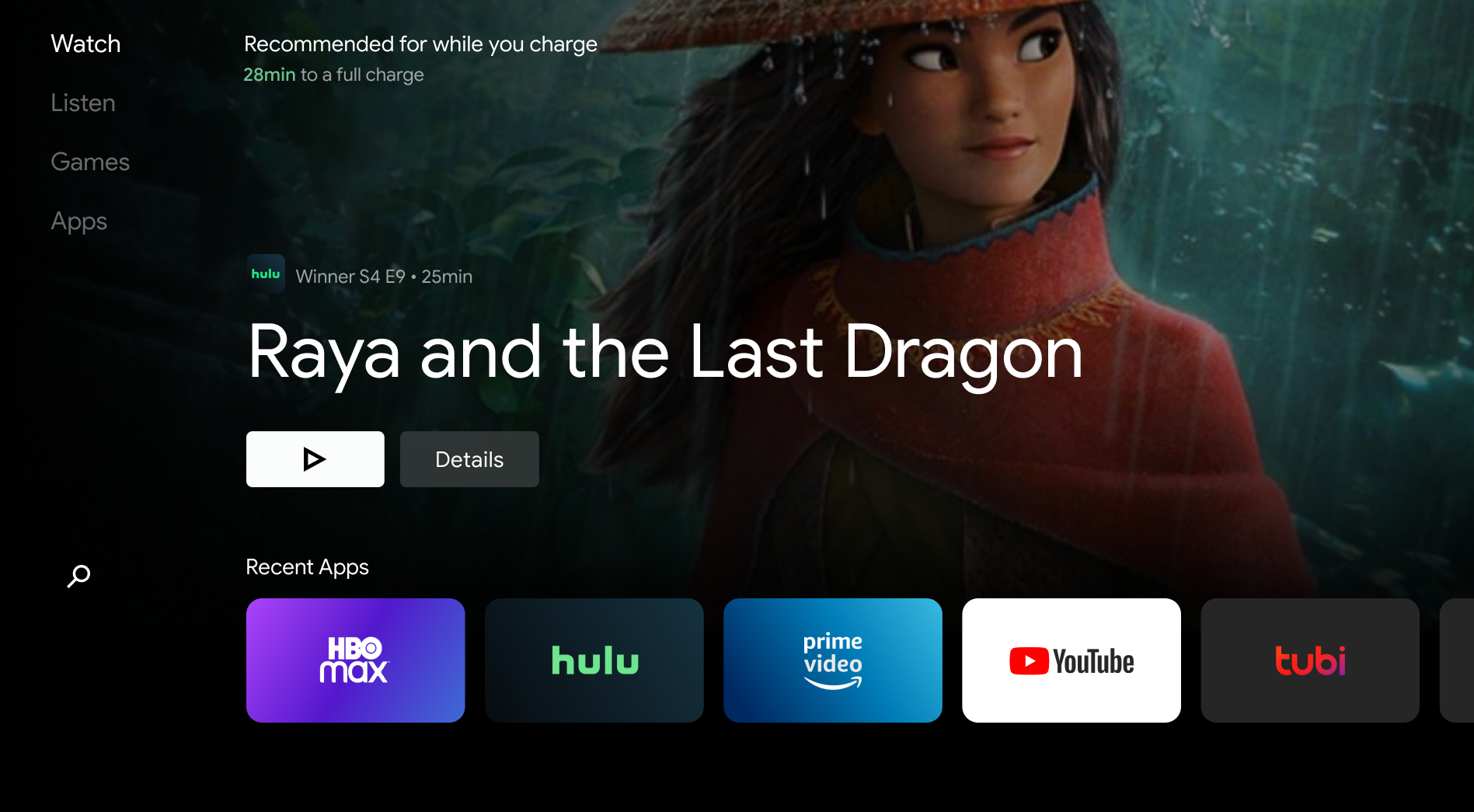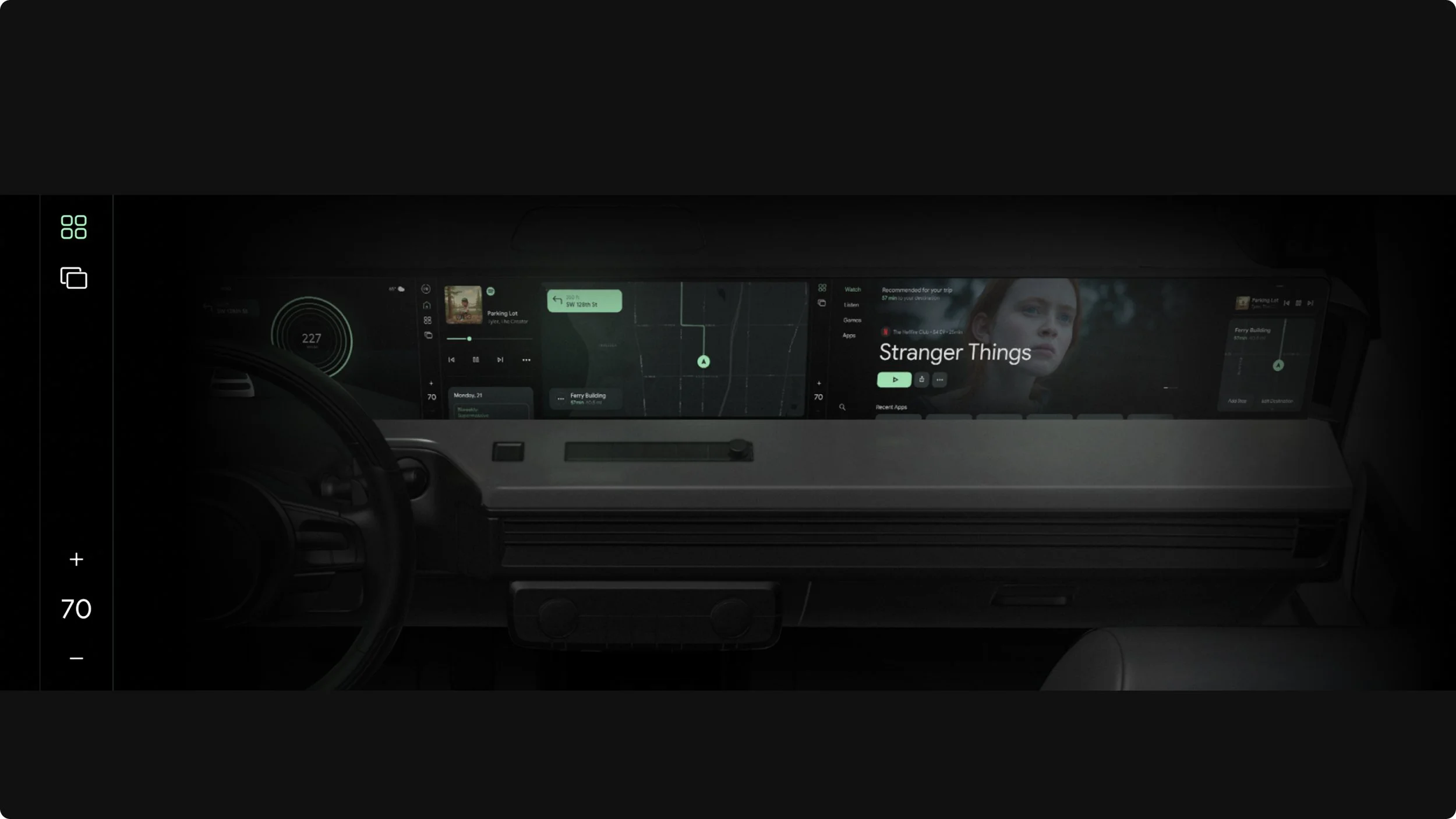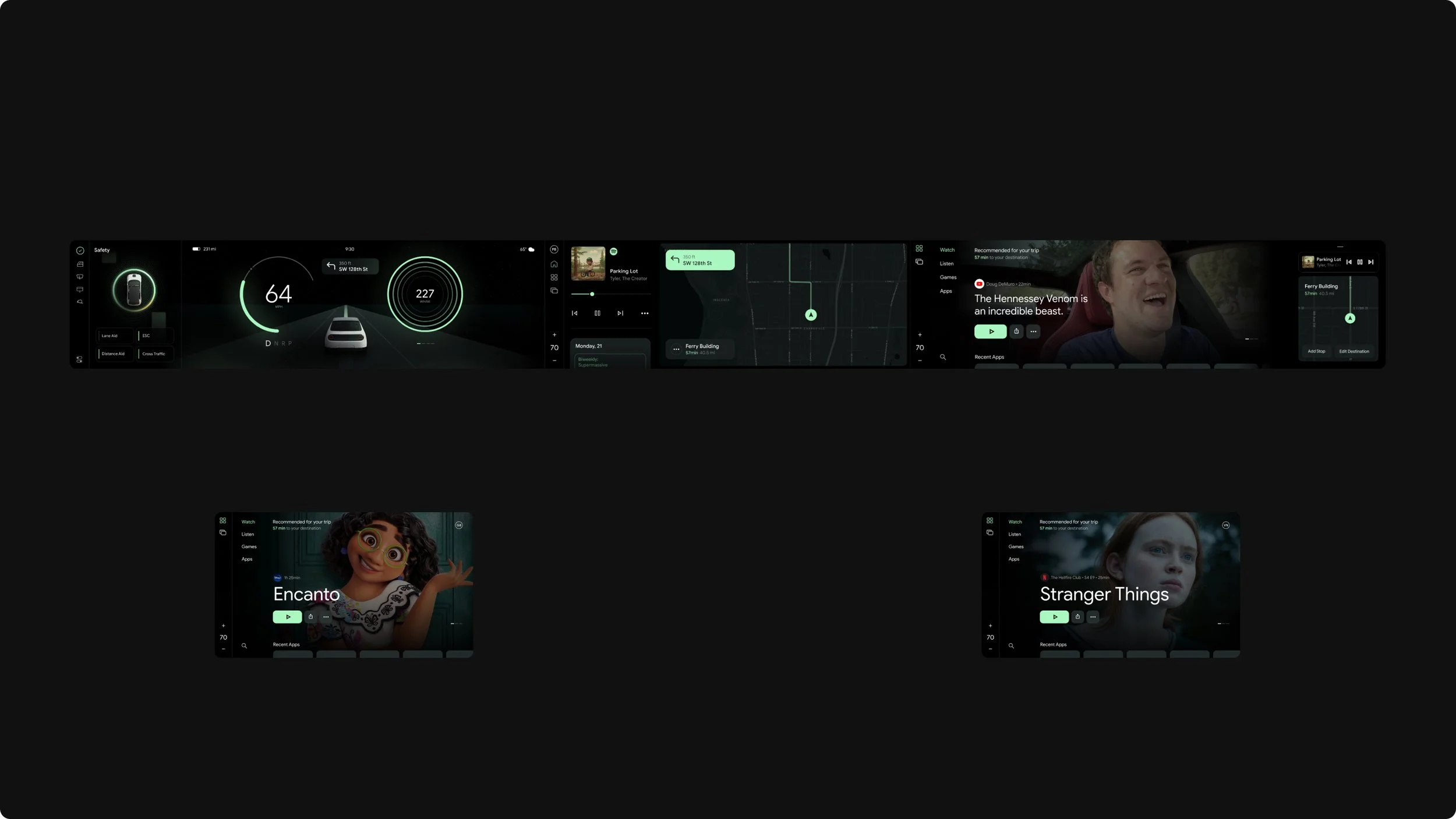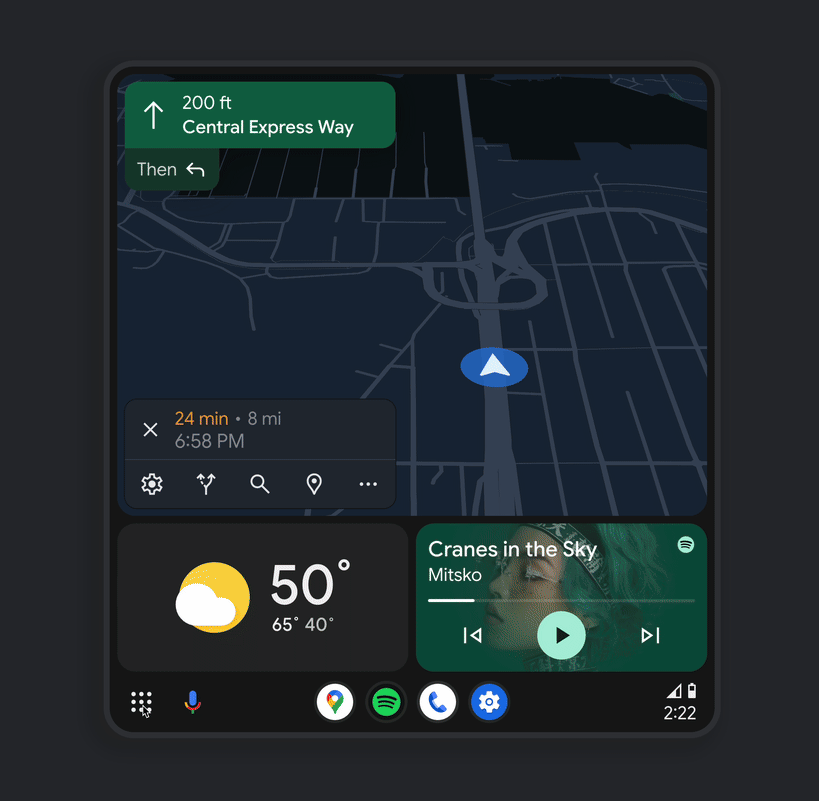Whole cabin experience
Scope & challenge
Deliver a scalable platform that works across panoramic displays, passenger and rear-seat screens, and instrument clusters.
Define how entertainment apps (video, games, media) would adapt to non-touch displays, including rules for driver control and passenger handoff.
Establish a widget framework optimized for glanceability and safe in-car interactions.
Partner with global automakers to align platform design decisions with their roadmaps.
My role
Manager & art director
UX Team
2 interaction designers, 1 visual designer, 1 motion designer, 2 researchers
The problems
Industry is going big
OEMs have consistently increased the size of their screens to differentiate from the competition and increase the value perception of their products. However, they struggle with utilizing the newly available space provided by massive displays, and their design teams have been asking for our point of view.
Old tech
Much of the industry relies on old technologies like HDMI or poorly-optimized solutions like Fire TV (which require a physical remote for the best experience). The result is subpar experiences for passengers and drivers.
While the Assistant is great for starting a playlist or sending texts, it is not very useful beyond that. It lacked proactiveness and had limited functionality.
Scalability
Google needed a scalable UX framework that could work across panoramic dashboards, passenger displays, rear-seat entertainment, and driver clusters. The challenge was to enable rich experiences like video and games while maintaining strict safety standards, designing for non-touch displays, and ensuring clear control between driver and passengers. At the same time, we had to align these design rules with global automaker partners and present a cohesive vision to the industry.
“I think that it would be better to not have tablets just sitting around willing or waiting to be lost because I've lost a few tablets that way. Not fun.”
— Google Bulit-in user
GOAL
Design a scalable UX framework that expands Android Automotive OS from a driver display into a safe, seamless whole-cabin experience across every screen in the car.
Focus areas
-

System & apps
Core Framework, launcher, widgets, notifications, interaction patterns, keyboard, and stationary mode
-

Entertainment
Browsers, kids mode, content recommendation (concept), and personalization
-

Sharing
Co-piloting, co-watching & sharing, and screen management
Principles
Seamless for drivers
Critical tasks require zero or one tap and are always reachable. Enables easy control of other displays not within reach of the driver.
Fun for passengers
Entertainment serves as the core experience for passengers. Favors simplicity, content discoverability, and empower passengers to help the driver.
Surprisingly predictable
Provide familiarity and expected outcomes. Uses consistent patterns for all users and avoids abrupt changes in layouts without user input.
Hardware configurations to consider
Pano complexity
Recognizing an emerging trend in the automotive industry, we opted to concentrate our efforts on non-touch distant displays. While our existing solutions are readily adaptable to multi-touch screens, we embraced the challenge of developing something specifically tailored to unique automotive needs.






Testing interaction designs
Visual exploration
Controlling multiple screens
Customization
User control
-
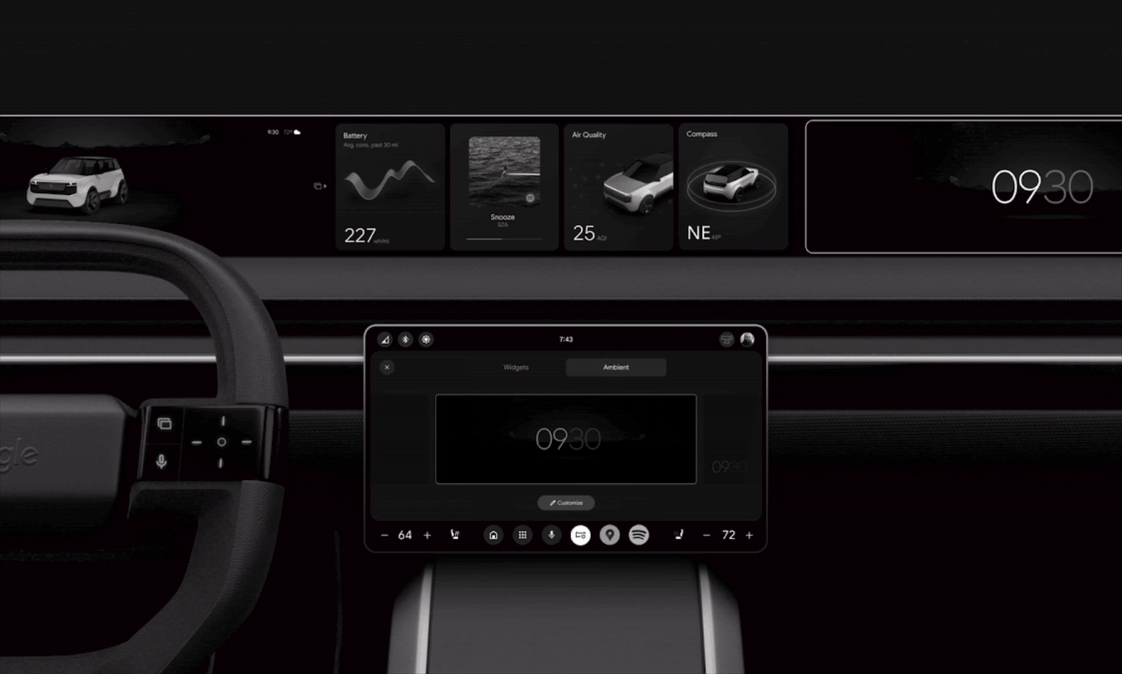
Personal
Users can add a personal touch, such as family photos, to act as wallpapers on secondary displays
-
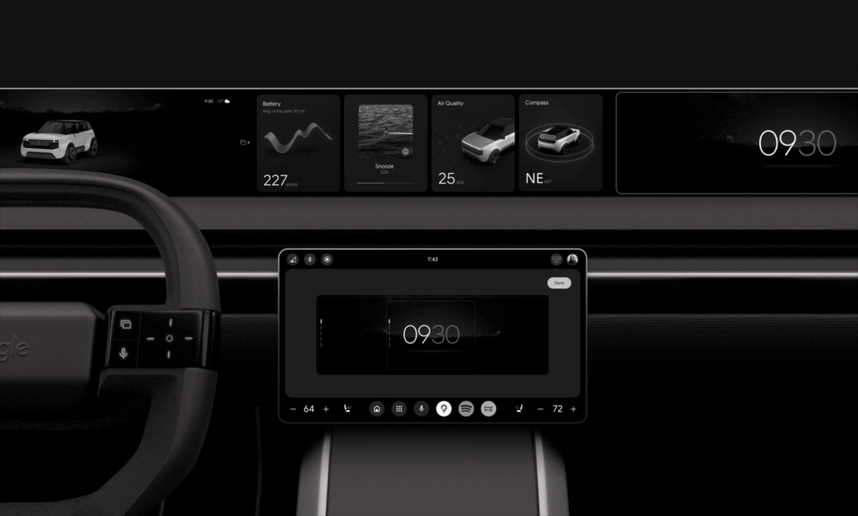
Customizable
Granular control allows more unique combinations
-
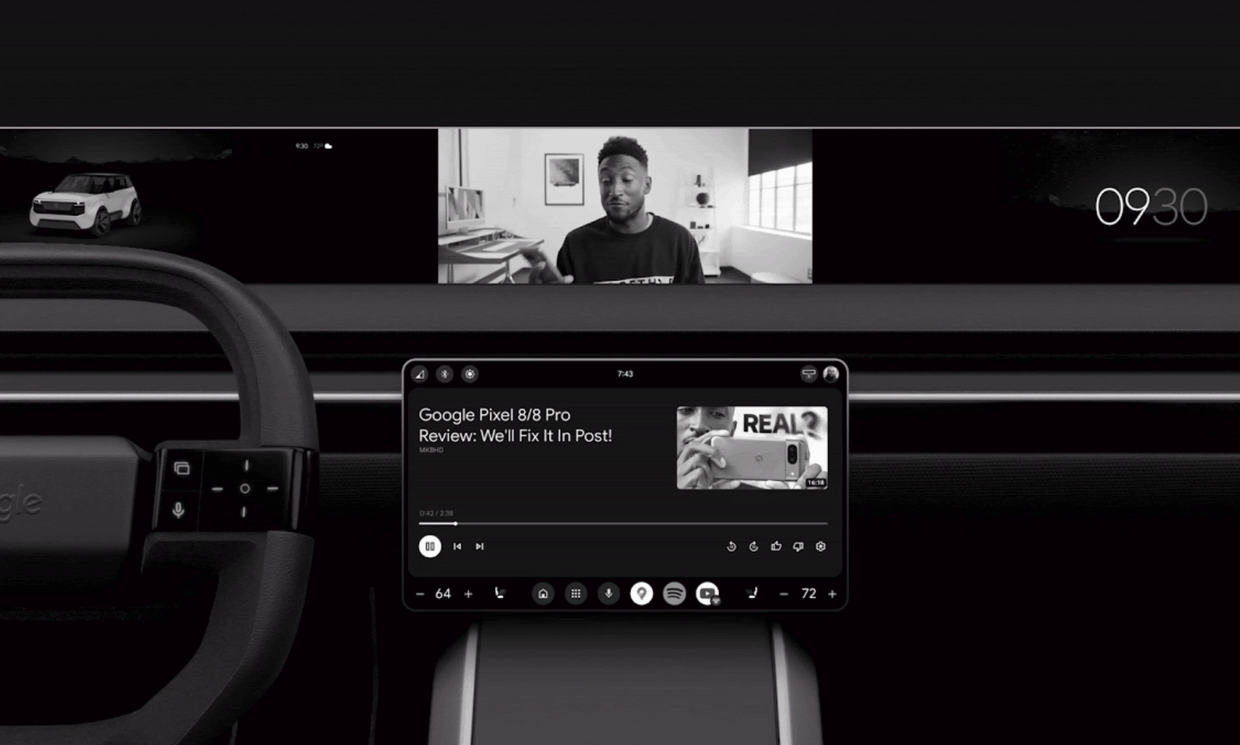
Moves content
Quick controls allow the movement of content around other displays
-
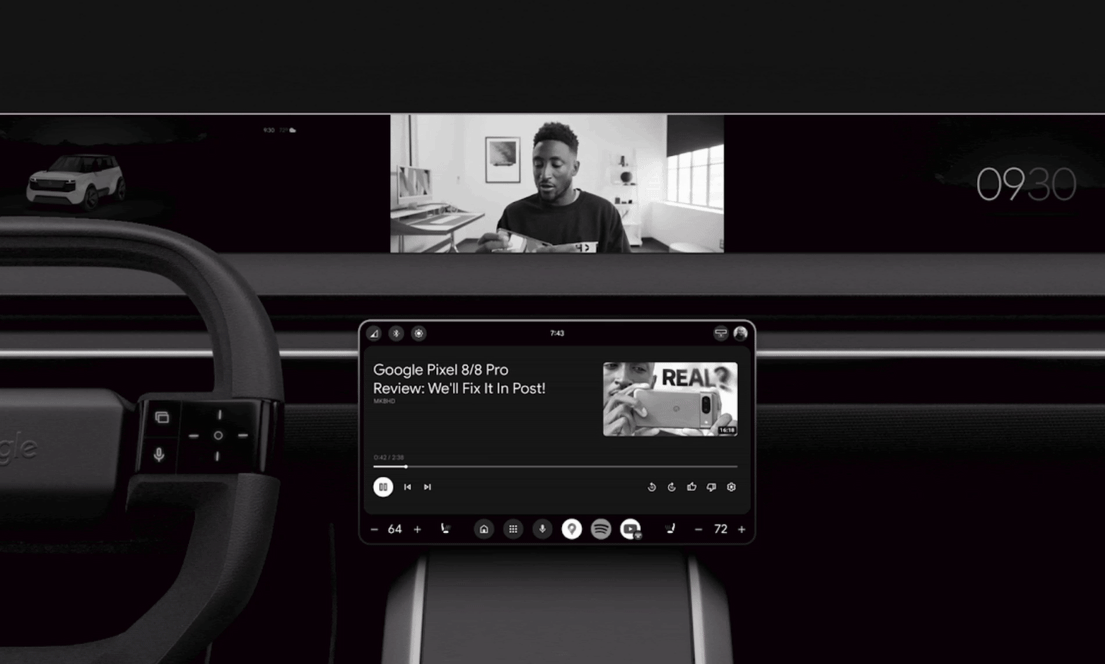
Retrieves content
The same quick controls can also easily bring content back to the main display
The impact
Multi-display support
Officially announced AAOS multi-display support at Google I/O
New Google-Built in vehicle launches
Our work directly influenced and positively impacted the new panoramic display experience at Lincoln, Ford, and Cadillac
Industry influence
AAOS partners like BMW updated their vehicle line up to have access to our OOTB multi-display experiences
Whole cabin experience
Next project
Android Auto redesign
A whole new design from the ground up. Better suited for new larger displays and powerful multitasking.





